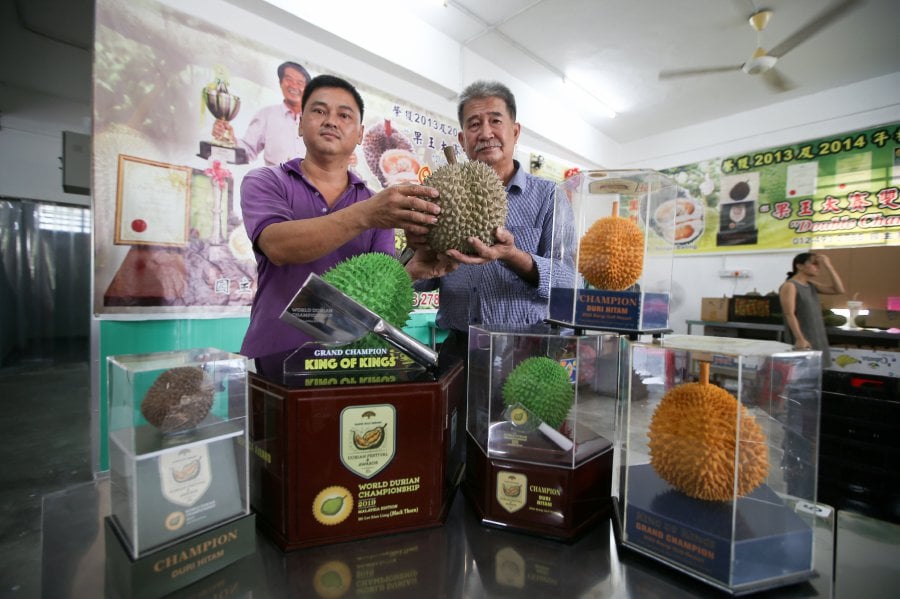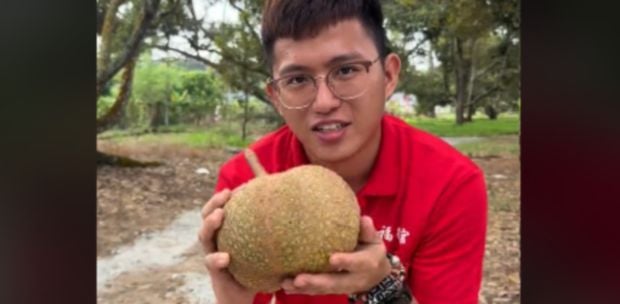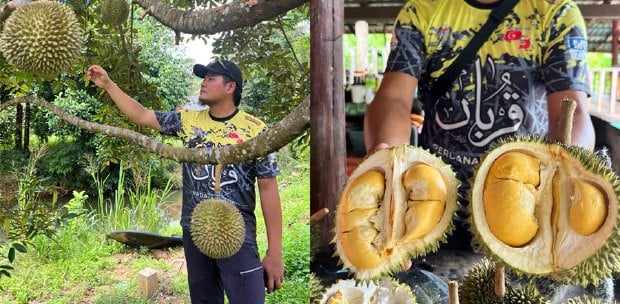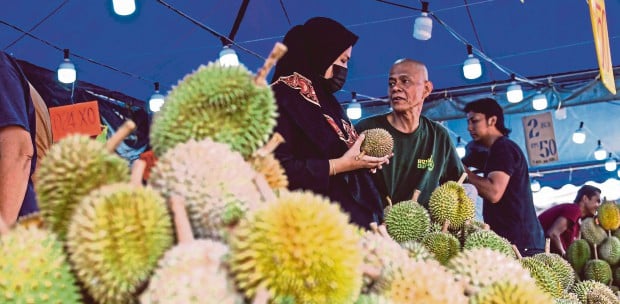GEORGE TOWN: As the durian season peaks, the atmosphere in Nibong Tebal, Penang is nothing short of festive.
Enthusiasts of the king of fruits have turned up in hordes, drawn particularly to the stall that sells the local specialty — the black thorn durian.
Stall owner Leow Cheok Kiang, 65, said the 40-year-old black thorn durian tree in Kampung Lima Kongsi had become a local sensation.
Leow recalled the origins of his prized durian, stemming from a seed given to him in the 1980s by a friend.
He said he was unaware of the type of durian seed he had been given.
"I planted the seed, and about four or five years later, the tree produced fruits and flowers.
"The fruit is pale in colour while its taste is sweet and soft, and quite intoxicating," he said.
He said the black thorn durian was considered a 'luxury' durian with a lighter texture.
Its flesh is not as thick as the Musang King clone.
Ranking at the top of the premium durian category, it has a creamy sweet taste with a slightly bitter flavour and a fragrant aroma.
"Its spikes are green like other durians, except the tips are dark brown, which gives it the name 'black thorn'," said Leow.
A crossbreeding effort of 15 years ago led to the creation of today's black thorn variety, which gained popularity around 2010.
Leow said growing the black thorn durian wasn't always smooth sailing.
"In the early days, my friends with durian orchards asked for the seeds and accused me of being stingy, even threatening our friendship.
"Eventually, this tree was widely planted in Malaysia and spread to China, Indonesia, Vietnam, Thailand, and many others.
"Even if it is planted worldwide, the tree's origin and the oldest one is here in Malaysia. You cannot deny this fact," he said, having been invited to plant the tree abroad.
Leow had entered the black thorn durian for the first time in the state-level durian competition in Penang and won first place, repeating the success in 2012 and 2013.
The Malaysian Agricultural Research and Development Institute registered the variety with code D200 and recognised Leow as the owner of the original black thorn tree.
Today, the black thorn durian has won more than 10 awards, including in the World Durian Championship 2022: Malaysia Edition, defeating 45 other participants.
In the competition, the fruits were covered so they couldn't be seen and were judged by 16 judges, including chefs, durian industry experts, Department of Agriculture representatives, and food personalities.
"There were other participants with black thorn durians but because my tree is the oldest, its taste is better.
"Unlike humans who fear aging, the older the durian, the better," said the father of four and grandfather of five.
Leow collects his black thorn durians from his orchard as early as 6am to sell at his stall for RM70 per kg. Smaller fruits go for RM50 per kg.
Currently, he manages an 80-hectare fruit orchard with his friends in Sungai Baong and Relau in Nibong Tebal, Sungai Rambai in Bukit Mertajam, and Bayan Lepas on the island, planting more than 1,000 black thorn trees, not including other varieties.
He said that elsewhere, especially in urban areas like Kuala Lumpur, the price could reach RM90 or even RM120 due to transportation costs and other factors.
Leow said the black thorn durian tree needed careful maintenance because it could fall if there was a strong wind, as its branches easily rotted.
So, the trees are tied together with special ropes to prevent them from falling. On average, his durian orchard can supply 100 to 300 durians a day.





